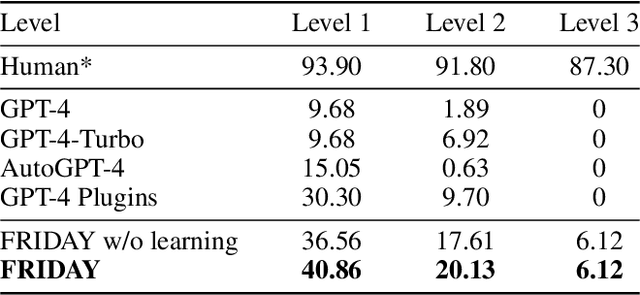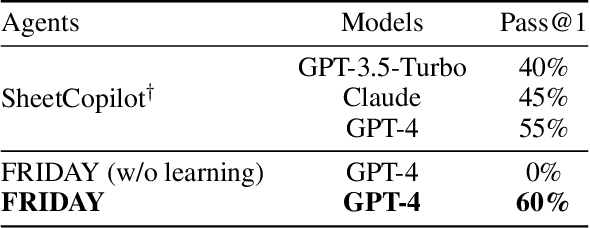Zhenmin Weng
Let's Be Self-generated via Step by Step: A Curriculum Learning Approach to Automated Reasoning with Large Language Models
Oct 29, 2024



Abstract:While Chain of Thought (CoT) prompting approaches have significantly consolidated the reasoning capabilities of large language models (LLMs), they still face limitations that require extensive human effort or have performance needs to be improved. Existing endeavors have focused on bridging these gaps; however, these approaches either hinge on external data and cannot completely eliminate manual effort, or they fall short in effectively directing LLMs to generate high-quality exemplary prompts. To address the said pitfalls, we propose a novel prompt approach for automatic reasoning named \textbf{LBS3}, inspired by curriculum learning which better reflects human learning habits. Specifically, LBS3 initially steers LLMs to recall easy-to-hard proxy queries that are pertinent to the target query. Following this, it invokes a progressive strategy that utilizes exemplary prompts stemmed from easy-proxy queries to direct LLMs in solving hard-proxy queries, enabling the high-quality of the proxy solutions. Finally, our extensive experiments in various reasoning-intensive tasks with varying open- and closed-source LLMs show that LBS3 achieves strongly competitive performance compared to the SOTA baselines.
OS-Copilot: Towards Generalist Computer Agents with Self-Improvement
Feb 15, 2024



Abstract:Autonomous interaction with the computer has been a longstanding challenge with great potential, and the recent proliferation of large language models (LLMs) has markedly accelerated progress in building digital agents. However, most of these agents are designed to interact with a narrow domain, such as a specific software or website. This narrow focus constrains their applicability for general computer tasks. To this end, we introduce OS-Copilot, a framework to build generalist agents capable of interfacing with comprehensive elements in an operating system (OS), including the web, code terminals, files, multimedia, and various third-party applications. We use OS-Copilot to create FRIDAY, a self-improving embodied agent for automating general computer tasks. On GAIA, a general AI assistants benchmark, FRIDAY outperforms previous methods by 35%, showcasing strong generalization to unseen applications via accumulated skills from previous tasks. We also present numerical and quantitative evidence that FRIDAY learns to control and self-improve on Excel and Powerpoint with minimal supervision. Our OS-Copilot framework and empirical findings provide infrastructure and insights for future research toward more capable and general-purpose computer agents.
 Add to Chrome
Add to Chrome Add to Firefox
Add to Firefox Add to Edge
Add to Edge